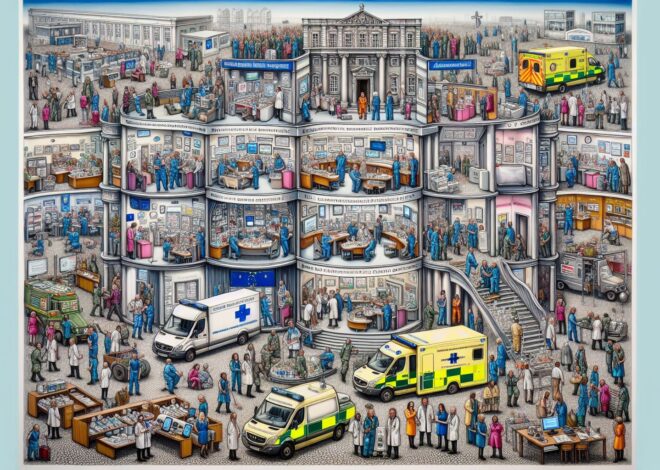
Strengthening European Health Systems: Preparedness and Response in Times of Crisis
The outbreak of the COVID-19 pandemic in early 2020 highlighted the importance of strong and resilient health systems in Europe. The ability of European health systems to respond effectively to such a crisis relies heavily on their level of preparedness. In this article, we will explore the preparedness and response of European health systems, addressing health professionals, policymakers, and concerned citizens.
Preparedness
Preparedness is the key to effectively managing public health emergencies. It involves having robust plans, infrastructure, and resources in place to respond swiftly and effectively to any crisis. European health systems have made significant strides in preparing for such events, with many countries investing in emergency response and contingency planning.
Health professionals play a crucial role in ensuring the preparedness of health systems. Continuous training and upskilling of healthcare workers are essential to ensure they have the necessary knowledge and skills to respond to emergencies. This includes training in infection control, crisis communication, and the use of personal protective equipment.
Policymakers also play a critical role in preparedness efforts. It is essential for governments to invest in healthcare infrastructure, including hospitals, clinics, and testing facilities. Additionally, a strong regulatory framework is needed to ensure the timely distribution of medical supplies and equipment during a crisis.
Response
The response of European health systems to the COVID-19 pandemic has been a mixed bag. While some countries were able to quickly mobilize resources and implement effective containment measures, others struggled to cope with the rapidly escalating situation. This highlights the importance of continuous evaluation and improvement of response mechanisms.
Health professionals have been at the forefront of the response to the pandemic, working tirelessly to treat patients, conduct testing, and provide vital healthcare services. Their dedication and hard work have been instrumental in saving lives and mitigating the impact of the virus.
Policymakers have also played a crucial role in the response effort, implementing measures such as lockdowns, travel restrictions, and vaccination campaigns to slow the spread of the virus. However, the pandemic has also exposed gaps in healthcare systems, such as inadequate testing capacity and a lack of coordination between different levels of government.
Conclusion
In conclusion, the COVID-19 pandemic has underscored the importance of strong and resilient health systems in Europe. While significant progress has been made in terms of preparedness and response, there is still room for improvement. Health professionals, policymakers, and concerned citizens must continue to work together to strengthen European health systems and ensure they are better equipped to handle future crises.
By investing in preparedness efforts, continuously evaluating and improving response mechanisms, and prioritizing the well-being of healthcare workers, European health systems can become more resilient and better able to protect the health and safety of their populations. Together, we can build a healthier and more secure future for all.



